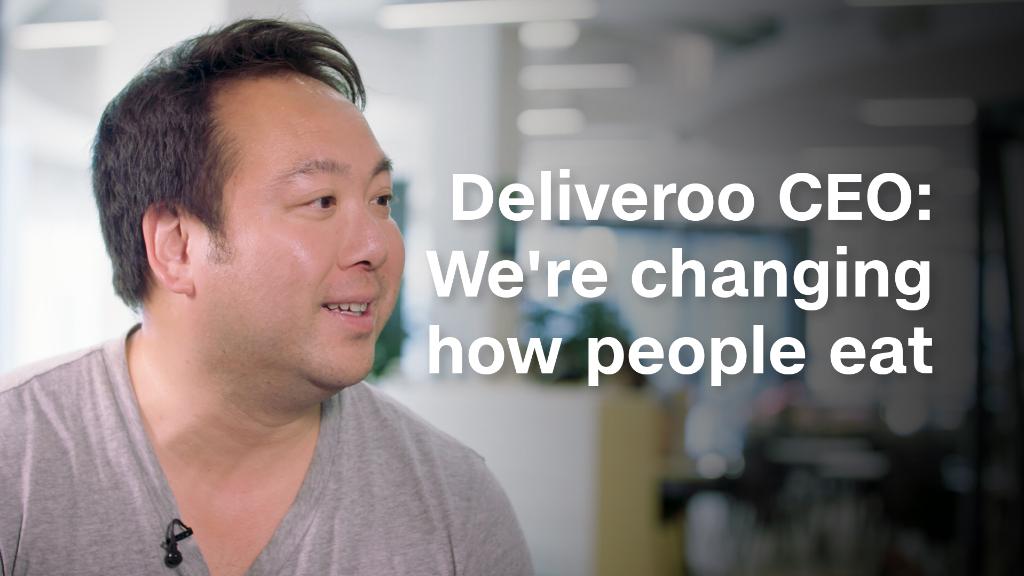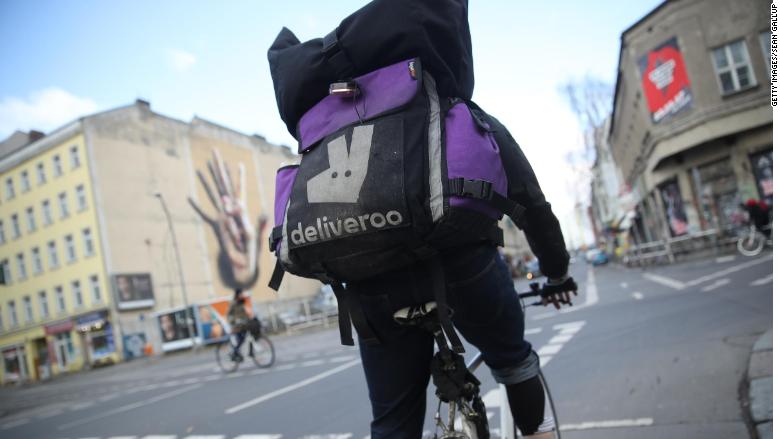
Food delivery company Deliveroo sees its future back in the kitchen.
Launched in 2013, the online food delivery service has emerged as one of the most successful tech brands overseas. It's currently available in more than 200 cities across Europe, the Middle East, Asia and Australia.
Unlike some online food companies, Deliveroo uses its own delivery people, often on bikes or mopeds, to get orders from local restaurants to customers -- similar to the model of rival UberEats, which operates in most of Deliveroo's markets and more.
But Deliveroo offers a unique twist: In addition to working with local eateries, it provides aspiring chefs with kitchen space to get small businesses off the ground. It then offers the food they make on Deliveroo.
While "unicorn" startups -- those valued at over $1 billion -- are more rare in Europe, Deliveroo's success has earned a $2 billion valuation in just five years. (In comparison, Uber was expected to make more than $3 billion from its Eats program last year, according to a Financial Times report).

Like many startups, Deliveroo comes from humble beginnings -- and it's still trying to figure out how to turn a profit.
"I was the first Deliveroo rider," co-founder Will Shu, 38, told CNNMoney. "I did that job for a whole year -- every single day."
American-born Shu started the company in London when he couldn't find delivery options from high-quality restaurants. He ultimately quit his job as an investment banker and went to business school to learn more about starting a company.
"I still do deliveries probably once every two weeks, so I have a pretty good sense of what riders want," he said. "Number one: They want flexibility."
Deliveroo employs 35,000 delivery people -- many of which work about 12 non-consecutive hours a week.
"They're actors in their spare time; they're students; they're taking care of the elderly; they're doing all kinds of different things," he said.
However, Deliveroo isn't free from challenges. Its delivery workers repeatedly go on strike over wages and lack of benefits. (Pay varies by country and region). Other companies with part-time workers, including Uber, face similar complaints.
Although not much change has occurred yet, Shu said it's working on a solution.
Related: Why Uber Eats and GrubHub partnerships are risky for restaurants
"There's been almost a black and white divide between flexibility and [job] security," Shu said. "We've been working with governments to try to end that because ... we want to offer riders benefits, but it has to be in the context of a flexible working model."
Although revenue has soared in recent years -- for example, it jumped 611% from 2015 to 2016, losses have mounted, its most recent filing shows. This is largely due to its expansion plans into 12 countries. According to records at UK's Companies House, the company had a loss of $162 million in 2016. It hasn't yet reported 2017 revenue.
Still, Shu said the company remains focused on growth, including the possibility of entering the US market, and building out its kitchen concept for aspiring chefs, called Editions.
"We set up the physical infrastructure for these restaurants," Shu said. "They take up occupancy."
The company takes a higher cut of each order than its traditional restaurant delivery service.
"The specific commercial arrangement can vary restaurant by restaurant, but the idea is that we are bringing the best supply to customers as possible," he added.
Although some reports indicate the company may go public as soon as 2019, Shu pushed back on rumors.
"I think it's a few years out," he said. "It's not something I'm obsessing about today. We're trying to roll out Editions, improve the customer experience and do so many things. We're thinking about entering new markets, too. That's where I'm at."

